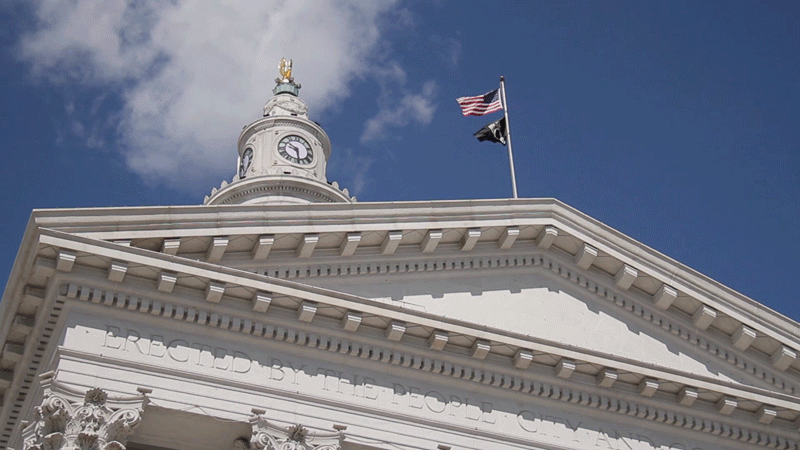City elections are a strange political creature. The results will arguably impact us more directly than any national race. Yet we can bet that more people know the name of Denver's former mayor running for president two years from now than the names of candidates running for mayor in less than two months.
Another thing to bet on, according to local political experts: The election will act as a referendum on growth and its far-reaching effects, from transportation options and economic prowess to neighborhood aesthetics and displacement wrought by a shockwave of investment in areas long neglected by the public and private sectors.
To address the city's problems and manage its good fortunes, Denverites have six people to choose from: professor and civic activist Lisa Calderón, neighborhood growth consultant Jamie Giellis, two-term incumbent Mayor Michael Hancock, artist and civic activist Kalyn Rose Heffernan, civic activist Stephan Evans (known better as Chairman Sekú) and former state senator Penfield Tate.
Experts say Calderón, Giellis, Hancock and Tate are the heavyweight contenders.
"A lot of the lesser known candidates are lesser known because they reflect a smaller slice of the population," said Robert Preuhs, a professor of political science at Metro State University who studies urban politics. "Habitual candidates that runs every year, their base is relatively narrow primarily because of the breadth of their positions."
Here's the other thing: Not many voters will show up, if history and pundits are a guide. Of the voters who tend to show up in general elections, only 29 percent pulled the lever in 2015's city election, according to Denver Elections Division. Turnout did not rise above 47 percent in the four previous municipal contests.
"One of the things to know about this election is that the timing is unique," said Curtis Hubbard, a longtime Denver Post journalist who's now a political consultant. "It's in a space almost entirely of its own and it's not when a lot of low-information voters are typically paying attention."
Yet a blizzard of voters elected Frederico Peña mayor in 1983 when 63 percent of registered voters cast ballots after Mayor Bill McNichols mismanaged a giant snowstorm. And in 1991, the year Wellington Webb became mayor, 77 percent of active voters showed up for the municipal election.
Preuhs says someone could challenge Hancock in a runoff.
That's what happens when no candidate gets 50 percent of the vote -- the top two vote-getters move onto the next round a month later. A runoff is quite possible with so many candidates siphoning votes, and with a diverse group running, Preuhs says.
"One interesting thing is that we have a fairly representative group from a racial and ethnic politics perspective," said Preuhs.
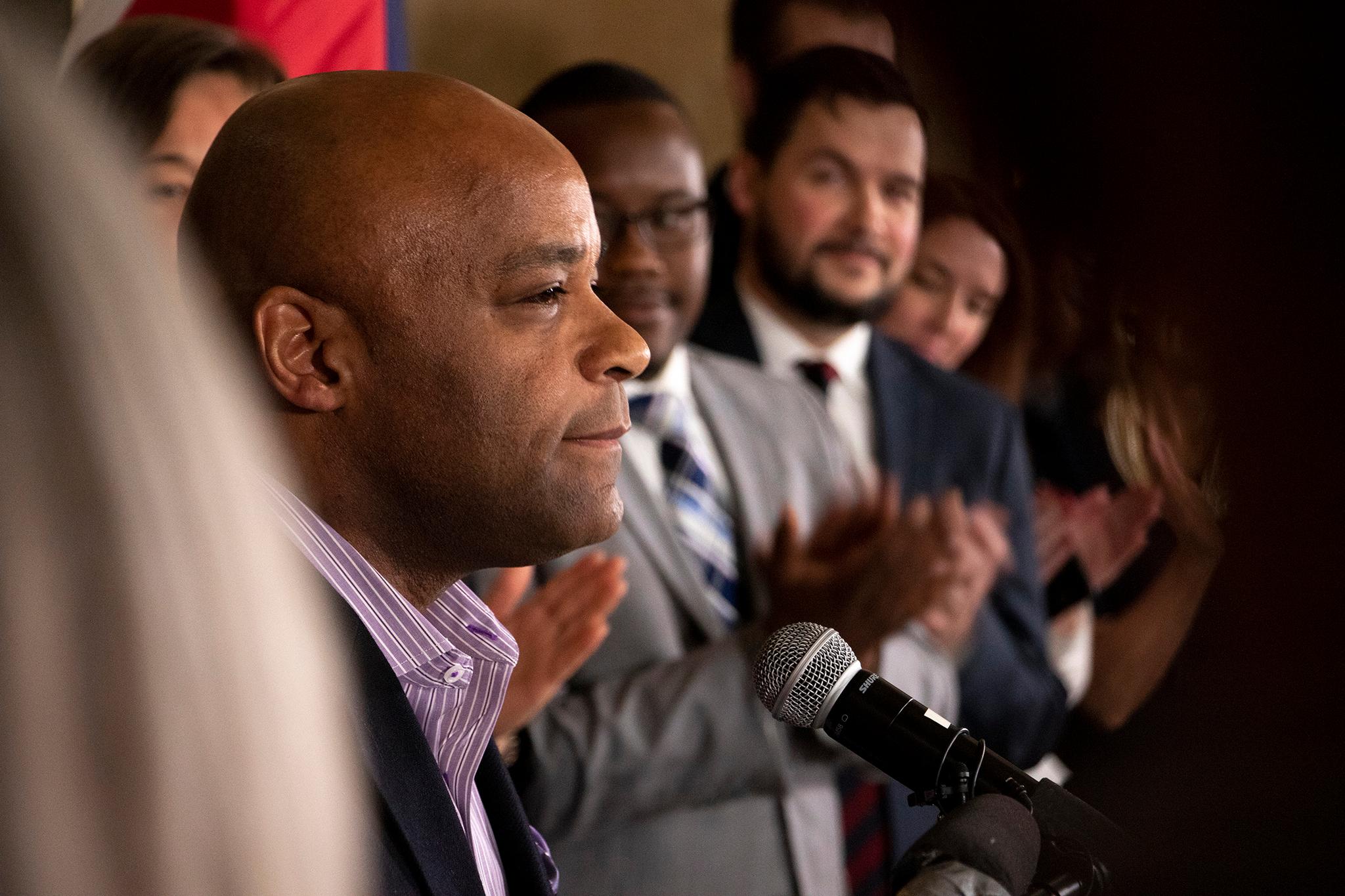
Denver's never had a woman become mayor and non-white politicians have won the seat more often than not since 1983. Preuhs says that history is relevant given that Calderón is a Latina, Giellis is a white woman and Tate is an African American.
Hubbard, who has done communications work for the Hancock administration's City Attorney's Office, does not see a watershed moment like a mismanaged blizzard hurting the incumbent mayor much.
Don't tell that to his challengers, who believe Hancock's tenure has been an eight-year-long watershed moment.
Whether it's lesser known names or the "big four," the mayor's opponents are seizing on development and the displacement caused by gentrification -- the sudden private and public investment in long-ignored neighborhoods like Five Points.
Denver's economic success for some has meant hardship for others who are forced to move or struggle to live because of higher costs.
"Some people will say Five Points is lost, that there's nothing we can do about it," Calderón said in an interview. "I don't believe that. There are still opportunities to enact anti-displacement policies. Even though the physical structures have changed quite a bit, the policies are going to be what maintain or expand that inclusive city that politicians say they want but aren't putting forth policies that align with their rhetoric."
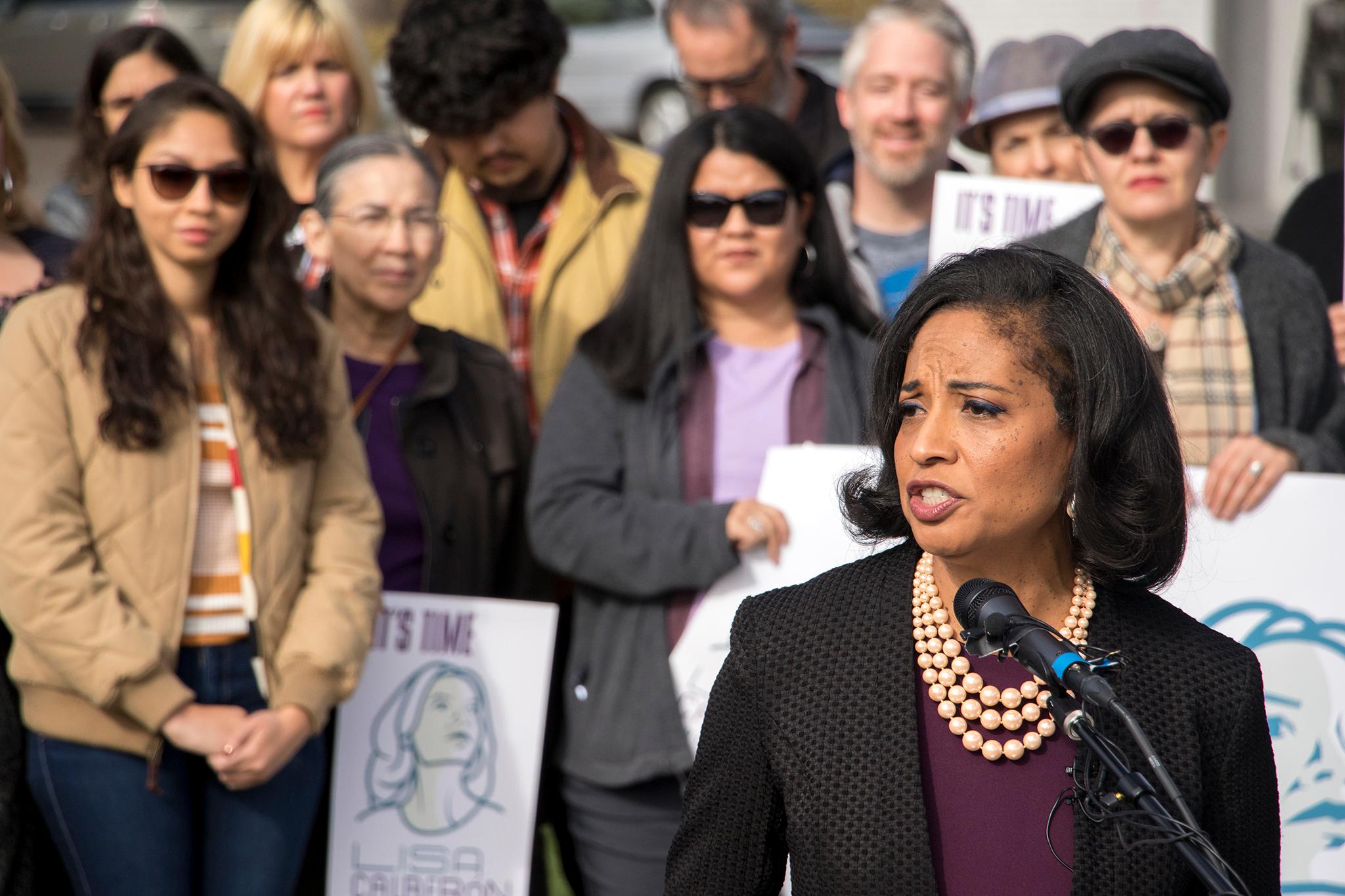
Calderón, a criminal justice professor and advocate, would offer more rental assistance and strengthen renters' rights as mayor, she said. She would also start "social impact assessments" that measure who development is benefiting, to what extent and how it affects the surrounding neighborhood.
As the candidate with the least money raised, she's relying on volunteers, not big campaign donation bucks, from Denverites -- especially from Millennials and women, who she thinks will opt for her over the mayor in part because of the sexual harassment in his past.
Tate and Giellis, too, are knocking on doors and making calls to likely voters.
Hancock is running, partially, on a platform of economic success, at least for city coffers and some business owners.
Denver has a healthy city budget with funding for parks, transportation and mental health in the pipeline, a thriving airport, and more growth coming.
Hancock's also touting what he might call equity wins: the city's first-ever affordable housing fund and a $15 minimum wage for city workers and contractors by 2021.
"It's not about relying on the things that we've accomplished, because we're still accomplishing," Hancock said in an interview. "And that's the difference in my vernacular from the rest of the candidates. I don't have to talk about what I want to do, I'm going to talk about the things that we are doing and how they fit into a broad spectrum of continuing to move the city forward into what we've always said we've wanted to be, which is a globally connected, globally competitive city."
It's easy to run against development, but mayors are constrained, Preuhs says, because they have to support growth.
"It brings in business, raises property values, and without that revenue stream you can't provide the services and you potentially lose people -- you don't wanna become a Detroit."
His opponents say they support growth and development, but they all want to rein it in.
Even Giellis, who made a local name for herself generating business and development in the River North section of Five Points (aka RiNo), said longtime residents are getting shorted.
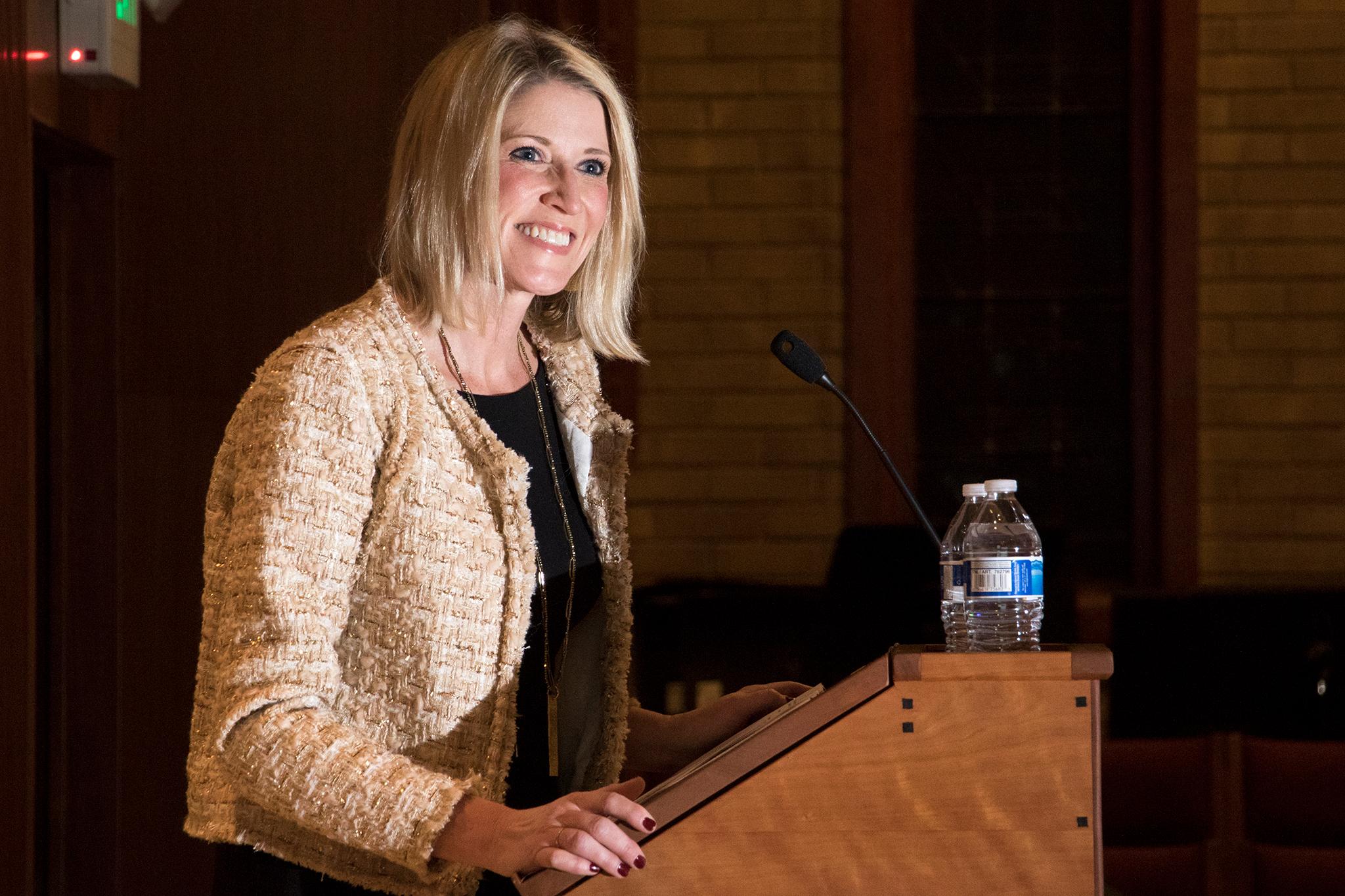
"I don't hear anti-growth sentiment when I'm out talking to people, not at all," Giellis said. "I hear that development has come too fast, it is crappy design, it is density wherever the developer wants it, the developer controls the process, and people don't know who to get a hold of because their councilperson is kind of gray in the process."
Giellis, a neighborhood development consultant, says she would retool the zoning code to only allow density "where appropriate" around the city -- not concentrated in one area -- and create policies that incentivize affordable dwellings by offering more developers more density, particularly near frequent transit.
Tate, an attorney and former state senator, said he would end the "linkage fee" that developers pay into the affordable housing fund because, he says, it's never enough to make a difference.
"I believe what happens is we collect the linkage fee and we build a pool of money, but it's not enough money to build at a scale or a volume of the affordable housing, whether it's for sale or for rent, that we need in this city," Tate said.
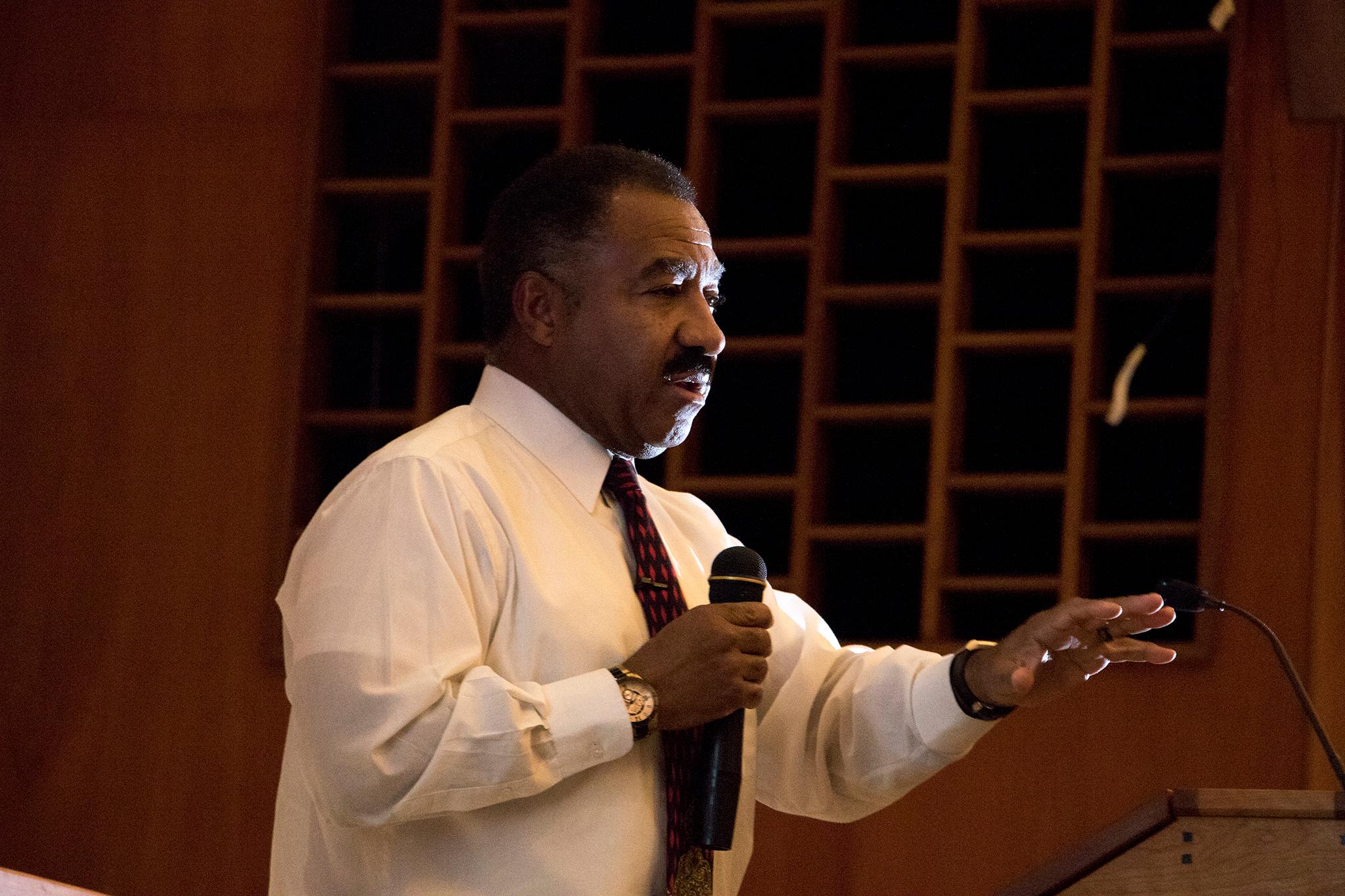
He says his administration would work with developers to ensure affordable homes are built, not bought out.
Not one of Denver's last four mayors led the money race when he first won.
Money is good, but it's not everything in city elections. People voting is.
That's according to Preuhs, who says most people don't know the city election even exists. If you have money, it's easier to get the vote out, but money does not always dictate local races.
"In a race like this, with four reasonably well-known contenders, it comes down to organization and the ground game, and really mobilizing your base," he said. "That's knocking on doors, going to meetings, energizing folks... bottom line. That's primarily because you don't need that many votes, relatively, to get into the runoff."
Here's what each candidate raised according to their most recent campaign finance filings. Click on a candidate's name to learn more about who is giving them money:
Calderón has raised about $78,000, including in-kind donations.
Giellis has raised almost $400,000.
Hancock has trumped all the candidates with about $1.5 million raised -- so far.
Tate has raised about $205,000.
Heffernan has raised about $1,700.
Evans, aka Sekú, has raised about $1,500.

